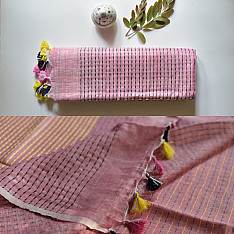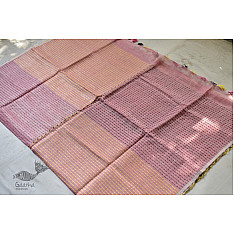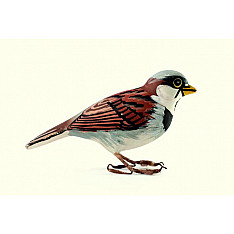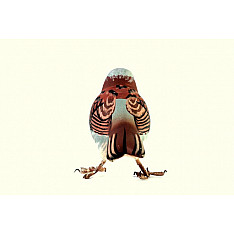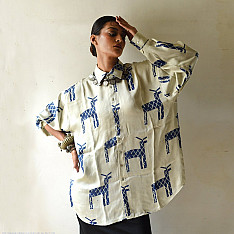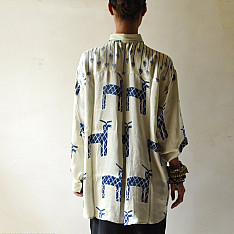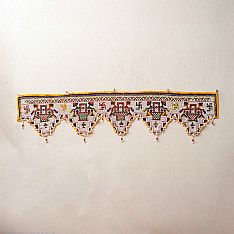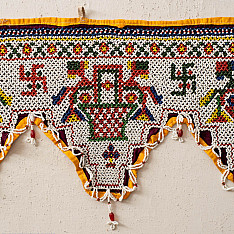- Availability: 5
- Made & Mkt by: Richa Chhabra Malhotra
- Product Code: 4211-PHL22-R03
- Weight: 800.00g
- Dimensions: 600.00cm x 112.00cm x 0.00cm
The typical dispatch time is 2-3 days; however, in special cases, it may take longer. Please refer to the product details section for specific timelines. Once dispatched, we will share the tracking details with you.
For returns, you can file a request within 24 hours of receiving the product. If the package is damaged, please make a video while unboxing and share images of the damaged item along with your return request.
9328006304 ( WhatsApp )

Bhagalpur, is one of the oldest towns of Bihar, references to which can be found in Indian epics like Mahabharata and Ramayana, as the kingdom of ‘Anga’. Popular for its textiles since 16th century , the town remains as an important textile hub for India till date. Situated towards the southern end of sacred river Ganges, it is also known as ‘Silk City’ of India. As the name suggests, this city is popular for its Silk, Seri culture, Manufacturing of silk yarn and Woven Textiles. The Silk manufactured here is also known as ‘Ahimsa Silk.’

Silk is called the Queen of Textiles for its sheen and grandure. Chemically it is made of proteins secreted in the fluid state by a caterpillar, popularly known as ‘silkworm’. These silkworms feed on the selected food plants and spin cocoons as a 'protective shell' to perpetuate the life. Silkworm has four stages in its life cycle viz., egg, caterpillar, pupa and moth. Man interferes this life cycle at the cocoon stage to obtain the silk, a continuous filament of commercial importance, used in weaving of this unique fabric.
Major clusters in Bhagalpur that produce silk yarn, silk and hand-woven cloth are Nathnagar, Champanagar, Mirzafari, Aliganj, Puraini, Dariapur and Sheikhpura. There are about 30,000 (Approx) handloom weavers found in Bhagalpur and 25,000 Handlooms. It was a family tradition among the lower income group to take up the weaving job in earlier times.

When the process of manufacturing of silk started in Bhagalpur, the knowledge of manufacturing became a way of life for the inhabitants of the region. The knowledge of craftsmen then got passed on from one generation to the other. The region is now renowned as the manufacturing centre of various qualities of silk fabrics. In the international market, it is specially recognised for silk sarees and upholstrey.
The silk produced in this cluster is mainly Tussar, Gicha, Matka, Eri, Mulberry and Noil. Silk is spun out of different stages like Jhuri, Danti, Katiya, Balkal etc. (all regional names used for manufacturing silk fabric).
Amongst these varieties, Tussar contributes to over 1/4th of total silk production, followed by Matka. Between these two, they contribute to over 50% of total production.

Tussar silk variety, produced here is coarse compared to the one produced in other regions. This coarse texture offers uniqueness to the silk produced in this region, thereby creating a distinct identity. Not only does tussar contribute to highest production within the silks produced in Bhagalpur, it also produces the largest quantity of Tussar silk in India. It may be worth mentioning here, that while local consumption of this silk is very high, it is also widely exported and stands as one of the top foreign currency earners in India for silk.
About 36000 persons mainly the members of the Scheduled tribes are engaged in rearing of Tussar silk worms, thereby creating employment, not only through weaving, also through sericulture. Over 100 Million cocoons are produced in the State, which give 1,60,000 lbs of reeled yarns and 1.2 lakhs lbs of Tussar waste.

The handloom weavers of Bhagalpur have gained expertise in manufacturing varied designed quality products in the region. The spinning and weaving of such wide range of yarn requires skill, but the local weavers of Bhagalpur and Banka district have attained the capabilities to perform easily. The weavers live in low roof height huts, with tiled roof or asbestos /tin sheets/ terracota tiles, in which the frame looms cannot be accommodated. Hence, they use pit looms for weaving silk fabrics. Moreover, pit looms are much cheaper when compared to frame looms. Weaving is mainly dominated by male in Bhagalpur. The are no women weavers engaged in the weaving job. But women in the weavers family generally assist male weavers in reeling and Bobbin –filling work.

The yarns are died in varied colours and all the pigments reported are supposed to be colour fast. Over 4500 hand-looms, engaging over 17000 weavers constitute the handloom cluster of Bhagalpur. 80% of these handlooms are reported to produce Silk and 20% cotton. Total textile varieties produced in the cluster includes 20% of saree varieties, 60% fabric (Yardage, Kurta-Pyjama), 20% Scarves and Stoles. A silk saree takes upto 7 days for manufacturing.
The poor but skilled labours of the district are fully familiar with handling these wide varieties of silk yarns. The texture of the yarn maybe very coarse like jute or maybe most fine or delicate does not cause any hesitation to the weavers for Reeling, Spinning & Weaving. Bhagalpur weavers are also acquainted with the use of other textiles i.e cotton (fine to coarse), jute, linen, viscouse, wool, cashmillon, polyester etc. In combination with silk. This speacial skill of Bhagalpur weavers perhaps sets them apart from the rest of the handloom sectors in India and in Asia.
~ Information By Urban Express
| Craftsmen | |
| Made by | Artisan working Richa Chhabra |
| City | Bhagalpur |
| Shipping ~ | |
| Shipping | If the product is in stock, we will ship it immediately. If it is not available, please allow 17-20 days for production. |
| Material | |
| Made of | Linen |
| Instruction | |
| About Sizes | Saree : 600 x 112 cm. |
| Note | - Imperfections and variations in the product cannot be termed as defects, as these are intrinsic to the handmade process. |
| Restrictions | |
| COD - Option | Not Available |

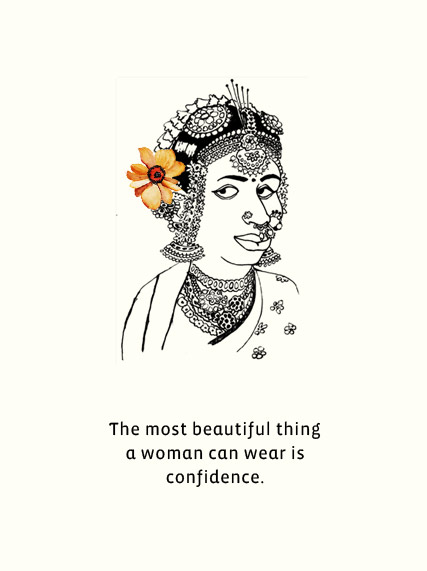

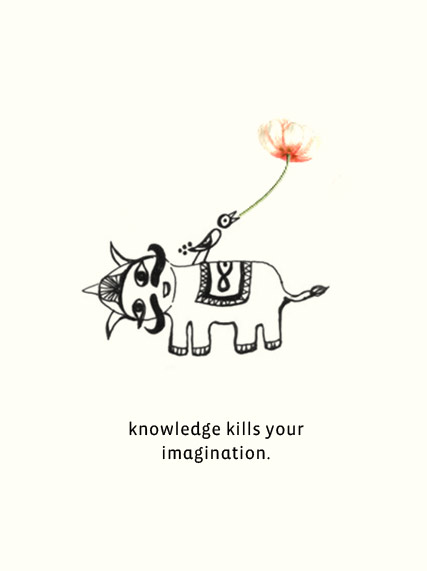

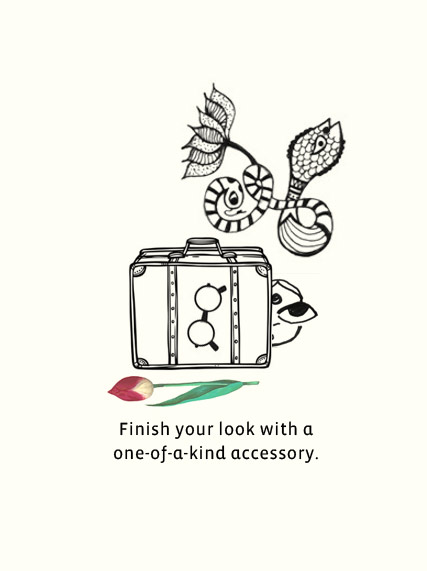


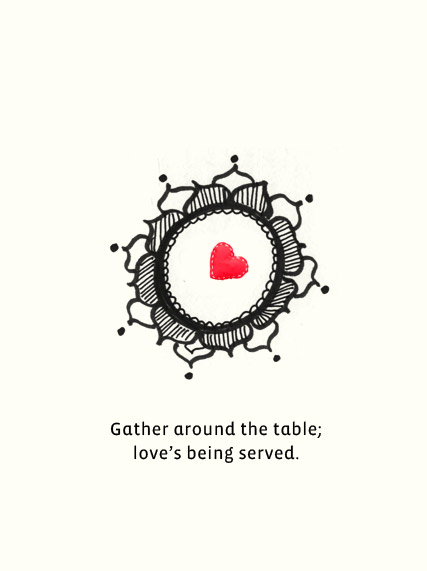


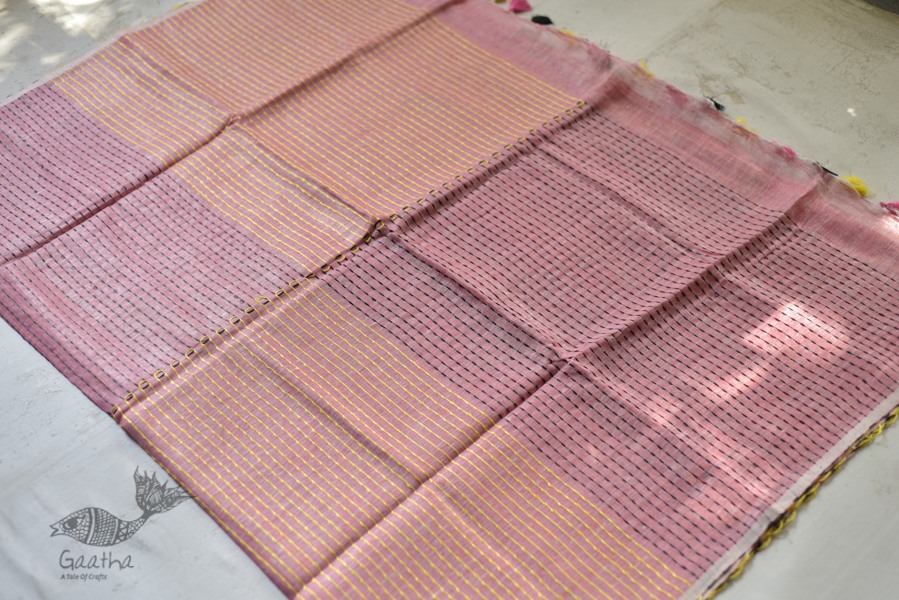
.jpg)
.jpg)
.jpg)
.jpg)
.jpg)
.jpg)


-80x80w.jpg)
-80x80w.jpg)
-80x80w.jpg)
-80x80w.jpg)
-80x80w.jpg)
-80x80w.jpg)

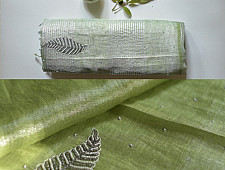
-225x170h.jpg)
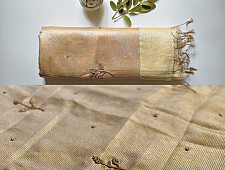
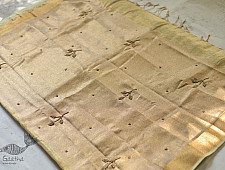
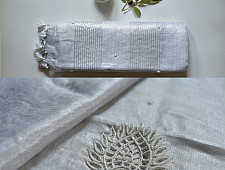
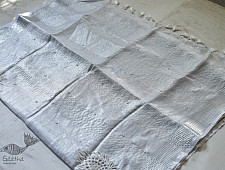
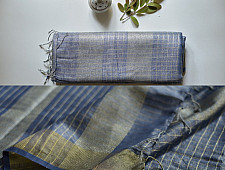
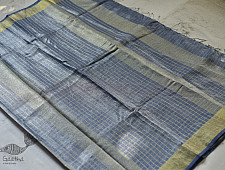
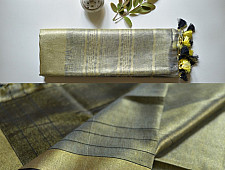
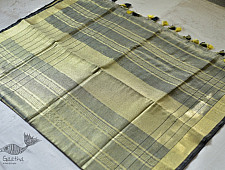
-225x150w.jpg)
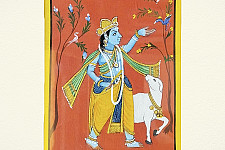
-225x150w.jpg)
-225x150w.jpg)
-225x150w.jpg)
-225x150w.jpg)
-225x150w.jpg)
-225x150w.jpg)
-225x150w.jpg)
-225x150w.jpg)
-225x150w.jpg)
-225x150w.jpg)
-225x150w.jpg)
-225x150w.jpg)
-225x150w.jpg)
-225x150w.jpg)
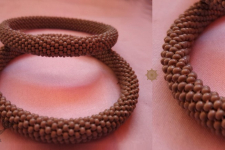
/15-Handmade-bead-bangles-225x150w.jpg)
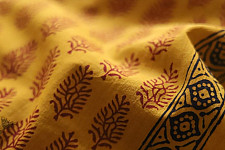
-225x150.jpg)
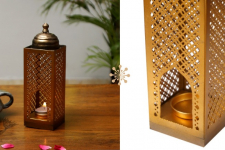
-225x150w.jpg)
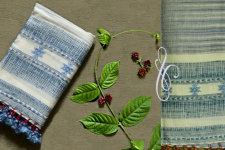
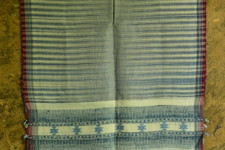
-225x150w.jpg)
-225x150w.jpg)
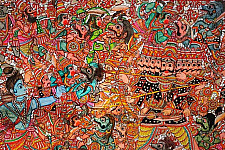
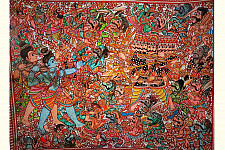
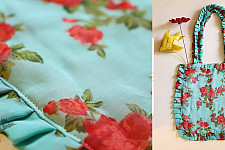
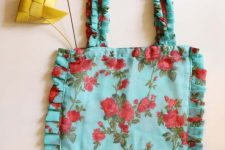
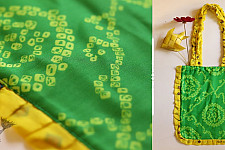
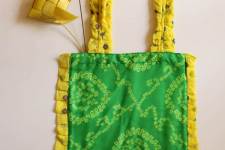
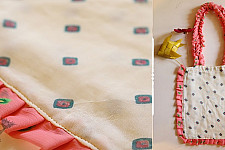
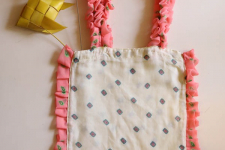
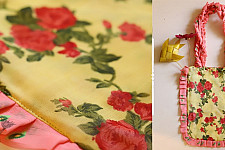
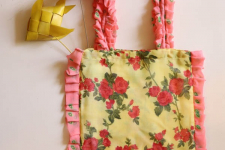
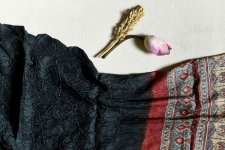
-225x150w.jpg)
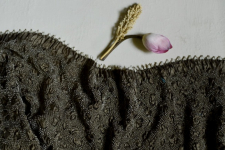
-225x150w.jpg)
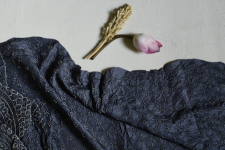
-225x150w.jpg)
